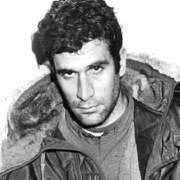|
the french love scatalogical humour also austrians
|
|
|
|

|
| # ? Jun 3, 2024 10:20 |
|
benjamin franklin upon hearing of rear end: I must visit this place.
|
|
|
|
Rumors surfacing that Comrade Lulu will offer rear end a free BBL (Brazillian ballistics liason)
|
|
|
|
Oglethorpe posted:the french love scatalogical humour FrancisFukyomama posted:doesn’t France have those really fancy mres Thai soup Box of eight packs of biscuits, standard, sweet (chocolate), and salty Arabica instant coffee, tea (black and green), hot chocolate Museli mix energy breakfast, oats with chocolate chunks Isotonic powder drink, mango flavor Nougat, various fruits Fruit jelly, two pear jellies covered in sugar Energy bar, mixed berry flavor Chocolate bar, 65% dark chocolate Jam, plum flavor Cassoulet of sausages and duck confit Pork, rice, and pineapple entree Deer pâté Blue cheese in a can Packet of tissues Salt and pepper packets Sugar packets Heating kit Water purifying tablets (pack of six) I hope that poor poor ambasador did get his blue cheese. I think only the Italian ones are bigger. They also have like 6 main variations. Comrade Koba posted:a french mre consists of half a pack of gauloises and some red wine in a juice box. That too i guess. Toplowtech has issued a correction as of 14:36 on Sep 17, 2023 |
|
|
|
lol deer pate and duck confit.  instead of bullets and tanks, armies should have to fight in iron chef style challenges
|
|
|
|
crepeface posted:lol deer pate and duck confit. https://youtube.com/watch?v=DCqzRAYwJr4
|
|
|
|
uh oh. https://twitter.com/gunterfehlinger/status/1703467718081442141?s=46&t=UyfxoSAUKW7QZlR_GhkuYA
|
|
|
|
gunther no! think of your family!!
|
|
|
|
lmao https://twitter.com/_liquid_w/status/1703484083550986528 edit https://twitter.com/red_spekter/status/1703504605517148338 i say swears online has issued a correction as of 21:28 on Sep 17, 2023 |
|
|
|
Well, it was fun while it lasted but Gunther is finished now
|
|
|
|
|

|
|
|
|
Slavvy posted:Well, it was fun while it lasted but Gunther is finished now No... no yet... not until he can see his dream come true...!
|
|
|
|
Pener Kropoopkin posted:uh oh. No!! GUNTHER!!
|
|
|
|
it’s all ogre now
|
|
|
|
 NEOM update!! NEOM update!!https://www.youtube.com/watch?v=WbHNULTKBSI this one's a pro-click lol. you can feel the scope-creep
|
|
|
|
so do you think the astronaut scene was inspired by Starfield or Star Citizen
|
|
|
|
NEOM has way too many pledge goals now. They're going to be stuck in development Hell forever.
|
|
|
|
https://twitter.com/PDWilliamsGWU/status/1703347262619869423 Somali government expels ATMIS Head and orders AU to withdraw all the 851 ATMIS/AMISOM Police in Somalia this month, and the army completely by next year.
|
|
|
|
community notes rock.
|
|
|
|
Middle East’s Mandarin push sets the tone for ‘convergence’ with China on trade Saudi Arabia has made Mandarin compulsory for public and private secondary schools to teach. Iran and Egypt are moving forward with introducing Mandarin as an optional subject in their middle schools.
|
|
|
|
OhFunny posted:Middle East’s Mandarin push sets the tone for ‘convergence’ with China on trade I assume English and Arabic are already mandatory, is there anything else?
|
|
|
|
lollin' at the russia officer sipping soup with an intense look of concentration on his face
|
|
|
|
https://twitter.com/sajid_nadeem78/status/1703800317282844711 https://twitter.com/sajid_nadeem78/status/1703875686841352461
|
|
|
|
https://twitter.com/NeilPHauer/status/1704074437975331119
|
|
|
|
whats azerbaijans military objectives with this new war?
|
|
|
|
Al-Saqr posted:whats azerbaijans military objectives with this new war? mostly land. landbridge to turkey, cut Armenia off from Iran
|
|
|
|
https://twitter.com/Caucasuswar/status/1704112414801707017 https://twitter.com/Caucasuswar/status/1704102413911629859
|
|
|
|
Lostconfused posted:https://twitter.com/Caucasuswar/status/1704112414801707017 dude is like an android programmed to make the worst decisions about everything
|
|
|
|
Lostconfused posted:https://twitter.com/Caucasuswar/status/1704112414801707017 Absolutely bitchmade
|
|
|
|
The Armenian army trying to go toe to toe with Azerbaijan using Soviet era equipment would be like the US army versus Iraq in Kuwait.
|
|
|
|
didnt azerbaijan make vague threats towards iran as well
|
|
|
|
Pener Kropoopkin posted:The Armenian army trying to go toe to toe with Azerbaijan using Soviet era equipment would be like the US army versus Iraq in Kuwait. Yeah, it sucks but there is literally nothing they can do, they are outmatched in population, foreign backing and military technology (especially since an actual war might result in a possible Turkish intervention).
|
|
|
|
I'd doubt that armenia has even recovered from the last thrashing, actually fighting back here just seems like a great way to lose whatever recovery progress has been made and get some sort of punative reparations slapped on top
|
|
|
|
Maybe they should've have tried to kick out the Russian peacekeepers Oh wait Armenia and Azerbaijan: Anatomy of a Rivalry Analyses the 30-year conflict for control over the contested territory of Nagorny Karabakh Provides a complete overview of historical, territorial, domestic, strategic, international and mediation perspectives Moves beyond chronological narrative and comparative analysis of post-Soviet conflicts Draws on the author's experience of over a decade as a practitioner of Armenian–Azerbaijani peace-building efforts Informed by fieldwork conducted in 2014–16 across the conflict and interviews with political and societal actors Uses theoretical frameworks to draw comparisons with other international, long-term rivalries, such as India–Pakistan and Arab states–Israel The Armenian–Azerbaijani conflict for control of the mountainous territory of Nagorny Karabakh is the longest-running dispute in post-Soviet Eurasia. Laurence Broers shows how decades of dynamic territorial politics, shifting power relations, international diffusion and unsuccessful mediation efforts have contributed to the resilience of this stubbornly unresolved dispute. Armenia’s Velvet Revolution: Authoritarian Decline and Civil Resistance in a Multipolar World In April 2018, Armenia experienced a remarkable popular uprising leading to the resignation of Prime Minister Serzh Sargsyan and his replacement by protest leader Nikol Pashinyan. Evoking Czechoslovakia's similarly peaceful overthrow of communism 30 years previously, the uprising came to be known as Armenia's 'Velvet Revolution': a broad-based movement calling for clean government, democracy and economic reform. This volume examines how a popular protest movement, showcasing civil disobedience as a mass strategy for the first time in the post-Soviet space, overcame these unpromising circumstances. Situating the events in Armenia in their national, regional and global contexts, different contributions evaluate the causes driving Armenia's unexpected democratic turn, the reasons for regime vulnerability and the factors mediating a non-violent outcome. Drawing on comparative perspectives with democratic transitions across the world, this book will be essential reading for those interested in the regime dynamics, social movements and contested politics of contemporary Eurasia, as well as policy-makers and practitioners in the fields of democracy assistance and human rights in an increasingly multipolar world. The Karabakh Conflict Between Armenia and Azerbaijan: Causes & Consequences This book focuses on Post-Soviet ethnic conflicts and Russia's involvement in them. In light of its significant importance for general ethnic conflict, specifically the post-Soviet Caucasus, along with the most recent war just fought over the area from September-November 2020, this book appropriately argues that it is time to reconsider Karabakh. This project deals with the historical, social and political aspects of the Karabakh issue regarding its origins, development and the current status of the conflict subsequent to the war in the autumn of 2020. Thus, the main themes will stress these points, as well as the importance of the Karabakh issue for the future, by considering its precedents and implications for other secessionist wars. This book also explores how such wars begin and end, the international legal precedents of self-determination versus territorial integrity, its implications for post-Soviet developments and conflicts, and the latest successful weapons developments lessons from the recent war involving drones, among others such as Azerbaijan’s rich oil reserves. Russia‘s Interventions in Ethnic Conflicts: The Case of Armenia and Azerbaijan This book explores the thirty-year border conflict between Armenia and Azerbaijan, specifically around the former autonomous republic of Nagorno Karabakh, and shows how Russia is the only winner in this conflict: fighting on both sides, supplying arms to both sides, and acting as the arbiter between the two sides. The author looks at Armenia, Azerbaijan and the separatists from military, political, economic and diplomatic perspectives, and offers insights on how the fighting has influenced society, and vice versa. The book provides an update to the history of the war to include major fighting in 2020, and examines how Russia obtained three military bases and most economic assets in Armenia, while becoming Azerbaijan's major weapons supplier to the tune of six billion dollars. It shows how Russia has tried to sideline the internationally-supported Minsk negotiations in favor of Russia assuming the sole role of arbiter, and argues that even though Russia has submitted a number of ceasefire proposals, it does little to encourage the sides to implement them. The book includes a discussion of international law, United Nations Resolutions, and rulings by the European Court of Human Rights. RAND Corporation, Extending Russia posted:Measure 4: Exploit Tensions in the South Caucasus "Finally, resolving Nagorno-Karabakh is likely a prerequisite to Armenia breaking with Russia, but it is unclear precisely how the United States or NATO could resolve the decades-old conflict without privileging one side and antagonizing the other..." 
|
|
|
|
HallelujahLee posted:didnt azerbaijan make vague threats towards iran as well Iran would support Armenia on the condition that Azerbaijan seeks to change borders. Azerbaijan doesn’t like that but that doesn’t appear to be what they’re doing now.
|
|
|
|
guidoanselmi posted:Iran would support Armenia on the condition that Azerbaijan seeks to change borders. i see im assuming if they actually invade armenia proper that would trigger something from iran
|
|
|
|
regional war in the south caucauses lfgggg
|
|
|
|
Persia vs Rum has been beaten to death. Hope we don't have a repeat
|
|
|
|
It appears Danish soldiers in Helmand complained to their superiors that their Afghan allies were doing summary executions and raping kids within earshot of them and the response was, "We've discussed it with the Brits and decided to ignore it". Just in case anyone had briefly forgotten that NATO is a democratizing force for good.
|
|
|
|

|
| # ? Jun 3, 2024 10:20 |
|
SplitSoul posted:It appears ISAF soldiers in every province complained to their superiors that their Afghan allies were doing summary executions and raping kids within earshot of them and the response was, "We've decided to ignore it". Just in case anyone had briefly forgotten that NATO is a democratizing force for good. ftfy
|
|
|





























